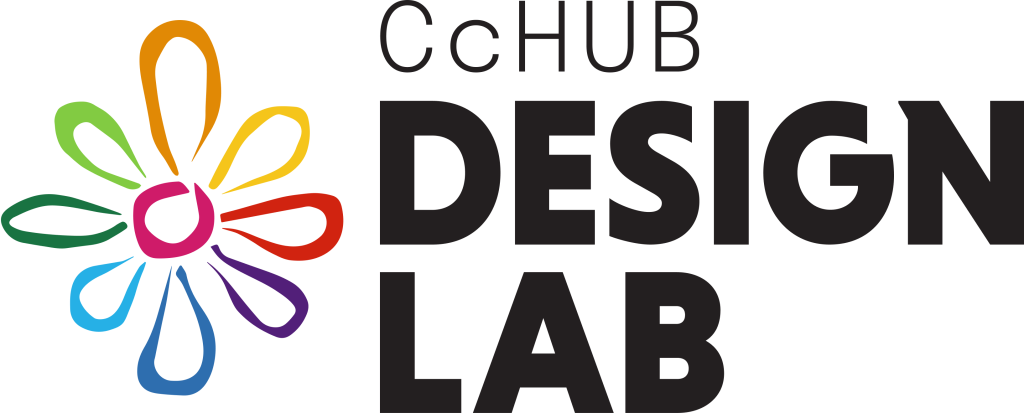This is the story of how the past 6 months re-invented me personally and professionally. I remember thinking that some journeys in life never leave us the same; yes, this is my journey in human-centred design.
My Goal
On the 4th of November, 2019; I wrote a goal that was going to alter the course of my life. I wrote, “By the end of April 24th, 2020; I want to have a created a solution for the health care sector in Africa using Human-Centered Design in the course of the CcHuB Design Fellowship Program”.
I went further to describe the fact that my goal would force me to redefine and refine myself. The big question on my mind was: “How would someone like me with a Bachelor’s degree in Health Education from the University of Benin, grow from a beginner to an expert in HCD within 6 months?”
The CcHUB Design Fellowship
The fellowship was an immersive training and mentorship program for “restless” people thinking about how to create sustainable solutions for social impact in Africa.
The program brought 15 exceptional individuals in Africa together and strengthened their HCD mindsets while they worked in communities with partner organizations to improve outcomes in routine immunization in Africa.
After being selected as one of the 15 beneficiaries of the fellowship, the profound experiences began. For 4 weeks, I learned from scratch the basics of Human-Centered Design. The immersive learning experiences, field trips, and dinners opened up my mind.
In one month, after a well-digested Bootcamp, I had absorbed the HCD mindsets, a new culture of work, fresh thought patterns from my fellow designers, industry mentors as well as dinner guests. I had now come to realize that “LIFE is by D.E.S.I.G.N”.
Here We Are
That warm Monday morning as I walked into the office complex of the National Primary Health Care Development Agency (NPHCDA) with my partner (Dabere Nwandikom), I thought to myself “the next 5 months of my life is before me, let’s make it count”. In less than 2 hours, we were done discussing with our Project Supervisor.
Our Project Supervisor gave us several documents to digest as well as a list of challenges to select from. It was not going to be an easy choice to make. After consulting with our Project Manager, Tomi Jaiyeola, we went ahead to choose a challenge to work on.
A little here, A little there!
Working on ‘Improving Routine Immunization Data Quality‘ as the challenge we had chosen was no small feat. Settling into the work processes at the National Primary Health Care Development Agency was as easy as taking a walk to the top of Mount Everest.
Each day had its unique peculiarity, the knowledge of Human-Centered Design absorbed during the one-month Bootcamp was our only source of strength. It was not funny when we walked into the office of a unit director in NPHCDA and he clearly stated that He needed to have a letter of introduction sent to him from CcHub. So, we did that and continued to make progress.
Different Phases
The first phase of the Practicum was the Research & Discovery Phase. This was where the “What” of the problem is ascertain and realized. More than anything else, I began to scout for knowledge, data, and secondary research that will open me up to the “What” question and provide me with a context. Everything I came across online opened my mind so I could ask “What” is wrong the Routine Immunization data quality.
I wrote my first project overview and made a list of the things I would need to be able to work even from home. The Discovery phase was to last for a period of 6 weeks and the whole idea was to enable us to carry out research that will deepen our understanding of the problem and get inspiration for new ideas! My partner and I were engrossed with secondary research for about 2 whole weeks. It was exciting, the more we read, the more we asked: “What more were we not seeing?”.
We discussed with stakeholders at NPHCDA, the FCT Primary Health Care Board, and our Project Supervisor, Mr Taiwo Adebesin. Initially, we learned about the data tools used at health facilities, the journey of routine immunization data entered by the Local Immunization Officers, and the Monitoring & Evaluation officers at the local government level. We then went ahead to plan our visits to the health facilities in the Federal Capital Territory.
The whole idea of the Discovery phase was to go in deep and come out with an understanding of not just the problem of data quality but the need of the users in the system. After planning and waiting for approval to visit health facilities, we went ahead with visiting, shadowing sessions, interviewing staff to understand their environment and visualize their journey. We spent nights, transcribing our recorded sessions to notes before analyzing them for insights.
In a period of 6 weeks, I analyzed routine immunization data using Microsoft Excel, started “Creative Problem Solving: Design Thinking in Health and Social Care” course on Future Learn and worked on the deliverables for the phase. It was during the visits to the health facilities in the 6 Area Councils, that I realized that the most important work factor for efficiency was not just the tools, systems, products, or processes but the people required to the work.
By the end of the 6 weeks, we had changed our challenge topic to “IMPROVING ROUTINE IMMUNIZATION DATA QUALITY IN PRIMARY HEALTH CENTRES IN ABUJA(FCT)”. We had come up with a problem statement after several iterations. We have had to remain optimistic despite several delays and glitches.
We have pushed our boundaries to work even at night and on weekends in the workspace, we had set up at home. I had stumbled on websites that I never knew existed; I had designed digital user personas from scratch with no prior knowledge. I had started and completed courses to develop myself on the Expanded Programme on Immunization. This was just the beginning of my refining and redefining.
Co-creation of Solutions
With a firm understanding of the insights from the discovery phase, spotting opportunities for solutions was less daunting. For want of a clear workspace away from the noise and clutter of meeting, my partner and I planned and held our brainstorming session at our home workspace. I had already shopped for an extra supply of sticky notes, markers, and other stationery.
I created two stories, one to depict the typical health worker’s challenging scenario in the struggle for routine immunization data quality and the other to depict the typical local immunization officer’s scenario.
Then we brainstormed for ideas against the clock. The challenge was to generate 100 ideas in an hour for the problem statement:
“How might we create a system/process that ensures routine immunization data quality across health facilities?”
So, we continued to randomly churn our ideas to the problem statement. When the time elapsed, we scheduled days to visit our end-users (the health workers) in the health facilities and the local immunization officers in their offices. We co-created solutions with the local immunization officers from the six area councils, and the health workers. In the end, we bundled the ideas up into 3 separate solution ideas.
Then the real learning started as we began to take to develop the concepts with the insights from the co-creation workshops we held.
Prototyping and Testing
From the 7th – 14th week into the practicum, I started trying my hands on digital wireframing and UI/UX tools like proto.io. We had to come up with a rapid prototype for one of the solutions, so we could be tested at the health facilities and with the various stakeholders. The solution with the potential for a high level of drastic impact was what we focused on. Hilariously, we found it exciting because we were consistently learning, practising and re-iterating as we moved along.
With the paper prototype ready, I spent hours trying my hands on proto.io. My partner and I took to whimsical.com to create the digital wireframe in less than 5 days. We were ready and excited. We paid a visit to our project supervisor at NPHCDA and he was quite excited about the idea. He gave his feedback and we implemented it soon after we got home. It was while planning the presentation of the prototype to the larger body of stakeholders that the Covid-19 pandemic struck in Nigeria.
The Unexpected
Our project was suspended and we were all asked to go home pending when things got better. In less than 48 hours, we were all packed and ready to return to our various homes.
On the 25th of March, 2020, I arrived in Lagos. Would this be the end of the Practicum? Was this the end of the solution we had co-created? Well, it was while the nation was on lockdown that the Design Traineeship Program contract expired.
The skills and values I learned will always be mine. I am especially grateful for the 14 other trainees who became like family to me. The immersive experience of the past 6 months of my life has forever shaped my life for something bigger and better. Did I achieve the goal I set for myself? Oh yes! I did, the program ended but every end is the beginning of something new and success to me is being able to look back and see significant growth in every experience I had.
While doing this write-up, I looked back at the weekly work out sessions, the shadowing at the health facilities, the deliberate effort to learn new skills, the laughers and voices of my friends and colleagues and I can say “the Co-creation Hub Design Lab fellowship program changed my life”.
Keep Moving
Moving forward, I am looking forward to contributing to the growth of human-centred design inspired solutions in Africa and beyond especially in the public health space. I am looking to join teams and organizations that are ready to blend design thinking in their work processes and projects. More than ever before, I am seeing the need to innovate. I am going all out. Come public health, digital health, front end development, and UI/UX designs, I am ready.

